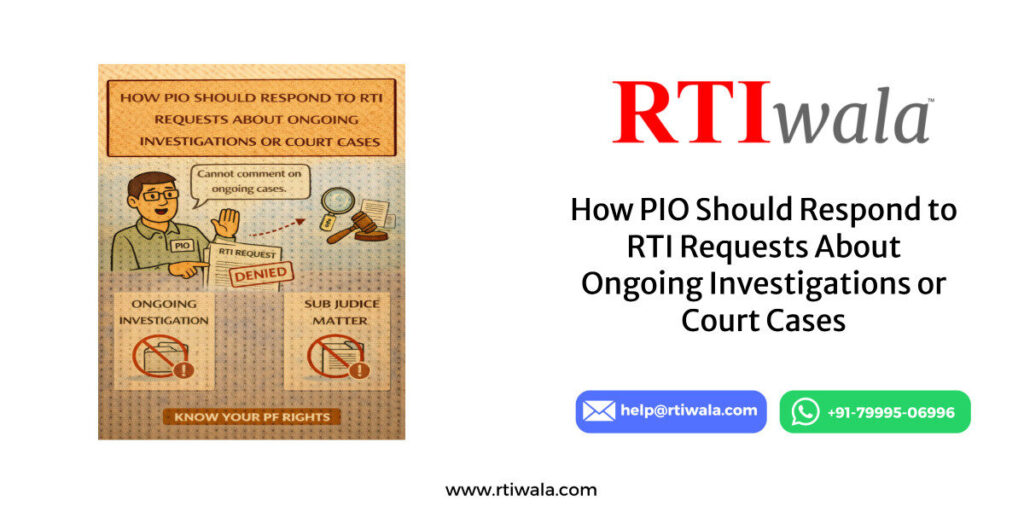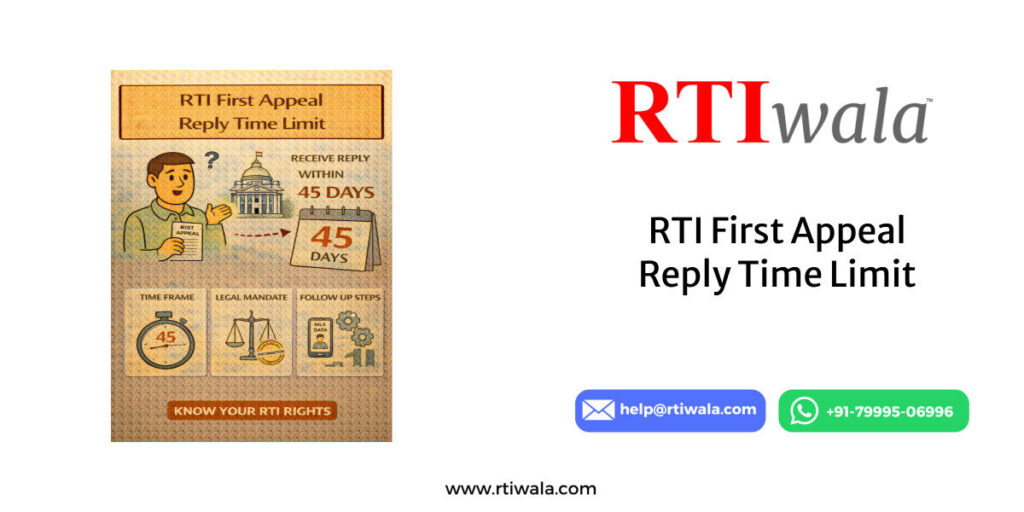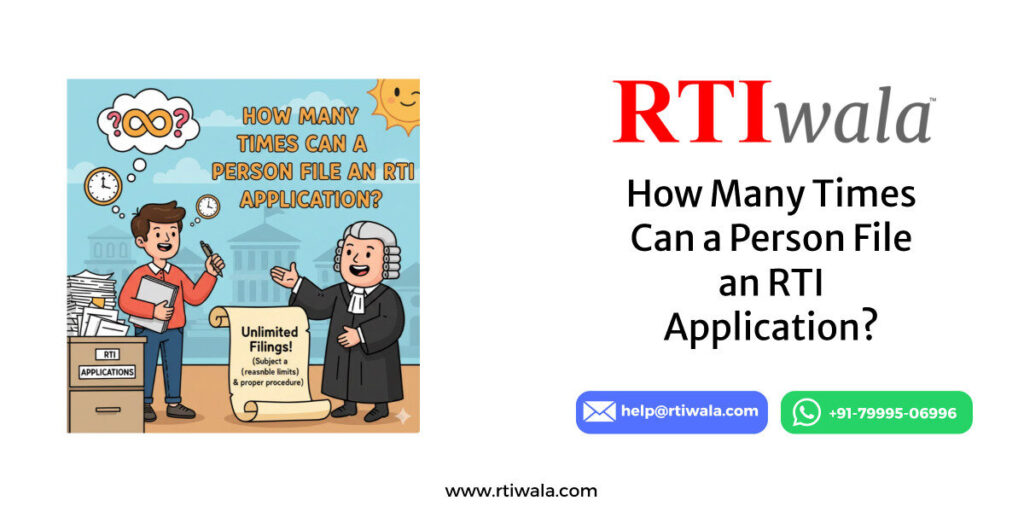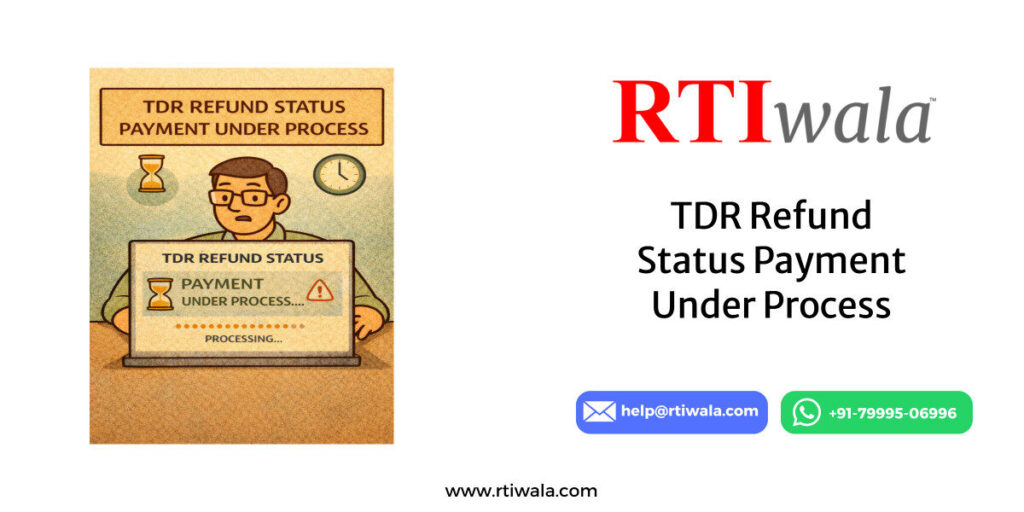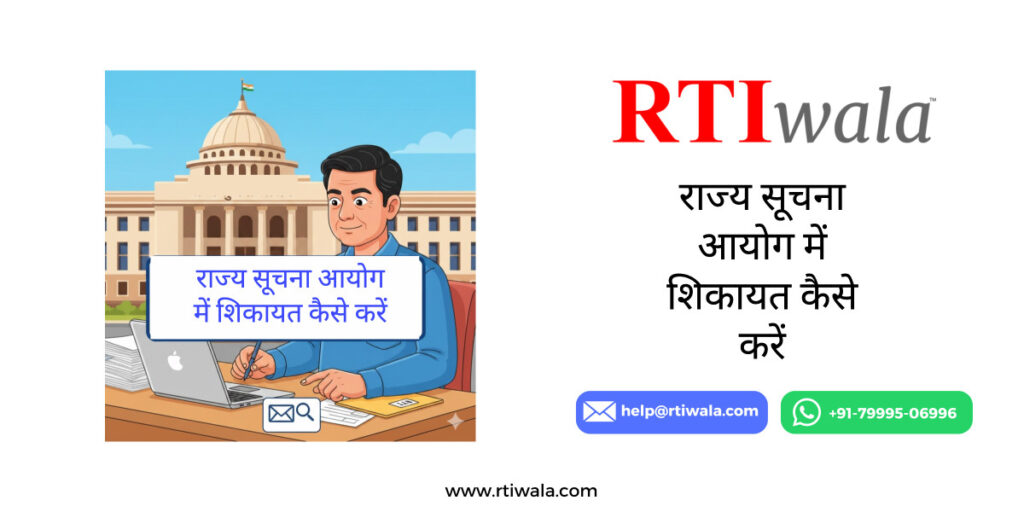Table of Content
Introduction: Why your RTI appeal time matters
When you file RTI online or submit an RTI application, you expect a timely answer. But what if the public authority delays or gives you unsatisfactory information? Then it’s vital to consider the RTI appeal time. Miss the deadline and you could lose the chance to hold the public authority accountable. With delays mounting in many commissions, taking prompt action is key. That’s where RTIwala comes in—our experts guide you to apply for RTI online, and if things go wrong, help you file online RTI appeals correctly.
What is an RTI appeal?
An appeal under the Right to Information Act, 2005 is your legal right when you are either denied information or the delivery of information is delayed/incorrect. The two main stages:
- First Appeal: If you haven’t received a response to your RTI application or you’re unsatisfied.
- Second Appeal: If you are unhappy with the decision of the First Appellate Authority or the time limit has been breached.
Using online RTI India portals or services like RTIwala ensures you meet the necessary formats and deadlines for both appeal stages.
Time-limits: first appeal and second appeal
First Appeal
- According to section 19(1) of the Act, you must file within 30 days from:
- the date on which you were supposed to receive information; or
- the date you actually received a decision.
- The First Appellate Authority should dispose of the appeal within 30 days or in exceptional cases up to 45 days.
Second Appeal
- If dissatisfied after the First Appeal, you may approach the relevant Central Information Commission (CIC) or the relevant State Information Commission.
- You must file the second appeal within 90 days from the date the First Appellate Authority’s decision should have been made, or the date you actually received it.
- Although no fixed time-frame for disposal of the second appeal is prescribed in the Act, best practice and case-law suggest disposal within 45 days.
Key takeaway: If you file RTI online and get no answer, or receive a bad answer, the countdown starts. Act within these windows or your rights may be stuck.
Key scenarios and deadlines you must know
- If you don’t receive any response within 30 days (or 48 hours in case of life or liberty) after your RTI application: you can go for First Appeal immediately (i.e., after the 30-day lapse).
- If you receive a response but you are unhappy with it (e.g., insufficient disclosure, high fees demanded): submit First Appeal within 30 days.
- After First Appeal decision: submit Second Appeal within 90 days.
- Miss any of these deadlines and the public authority may reject your appeal as time-barred.
This is why when you apply for RTI online or file online RTI, you must keep track of dates meticulously. RTIwala ensures these deadlines are monitored so you don’t lose your legal right due to negligence.
Common mistakes that delay your appeal (and how RTIwala helps)
Here’s what commonly goes wrong—and how we prevent it:
- Missing the 30-day window because you mis-calculate the date the PIO should have replied. We at RTIwala track the “expiry date” for you.
- Wrong appellate authority selected for First Appeal or Second Appeal. Our team identifies the right First Appellate Authority and State/Central Information Commission.
- Incomplete documentation: forgetting to attach copies of original RTI or First Appeal order. Our check-list covers this.
- Premature filing: Filing Second Appeal before the First Appeal decision or before the 45 days has passed (if that rule applies). This can lead to rejection. We advise when to file RTI online appeals correctly.
- Failing to submit a condonation of delay request when exceeding time limits for sufficient cause. We guide you on how to present it properly.
In short: With RTIwala, you get a step-by-step companion to file RTI online and to appeal correctly, avoiding the lurking risk of rejection due to time-bar.
How to file online RTI and then appeal if needed
Here’s a streamlined process:
- Apply for RTI online via the official portal (eg. rtionline.gov.in) or through our service. Fill in the RTI application clearly, pay the fee as required.
- Track the response date – count 30 days for PIO reply (or 48 hours if life/liberty).
- If you don’t receive a reply or it is unsatisfactory, you must file a First Appeal. Use our service to prepare, submit online or offline.
- After First Appeal decision: assess outcome. If still unsatisfied, then file a Second Appeal. Submit within 90 days from the relevant date.
- Collect all documentation: original RTI, responses received, appeal order, etc.
- Monitor further action by the Information Commission.
At each step, RTIwala ensures you know how to file Right to Information, how to file RTI online, filing RTI online, and ultimately file online RTI appeals without missing the critical “time-factor”.
Case example: Missing the deadline – the hidden risks
Imagine you used online RTI India portal to file an RTI on April 1. You never receive a reply from the PIO within 30 days (i.e., by May 1). Instead you wait until June 1—missed window. Now you try a First Appeal, but the authority rejects it because your appeal was filed beyond 30 days. Your right to appeal may be lost. The risk: you cannot enforce your right, and information may stay hidden.
With RTIwala, you’re alerted before the May 1 deadline, so you file First Appeal on time. The time-factor is vital; missing it can mean your RTI application becomes powerless. We regularly warn clients of the illusion of endless time – it isn’t endless.
Why using RTIwala gives you an edge
- Expert guidance on every step: from how to file RTI to navigating first appeal and second appeal time-limits.
- Deadline tracking so you never miss the 30-day or 90-day windows.
- Comprehensive documentation support: method, format, fee, attachments.
- Assurance & peace of mind: When you choose to file online RTI with us, you avoid the silent trap of delay or wrong appeal.
- High success rate: Our clients avoid the fear of their RTI being rendered useless simply because of missed deadlines.
Don’t risk waiting and wondering. Time is ticking once you apply for RTI online. Contact RTIwala today and secure your right to information.
FAQs
Q1. What is the time limit for filing the first appeal under RTI?
A. You must file the first appeal within 30 days from the date when information was due, or from receipt of PIO’s decision.
Q2. When can I file a second appeal and what is its time limit?
A. A second appeal must be filed within 90 days from the date the first appeal decision should have been made, or from the date you received it.
Q3. Can I submit an RTI online and then appeal online?
A. Yes. You can apply for RTI online, file online RTI, and also submit the appeal online (depending on state/central portal). RTIwala helps ensure you use the correct platform and format.
Q4. What happens if I miss the appeal deadline?
A. The appellate authority may reject your appeal as time-barred. You lose the legal right to challenge the decision. That’s why timely action is critical.
Q5. Does using a service like RTIwala help with appeal time-limits?
A. Absolutely. With our service you get calendars, reminders, documentation check-lists and expert review — so you avoid the fear of missing deadlines and losing your right to information.
Conclusion
The time limits for an RTI appeal are not mere formalities — they are hard-cut windows that govern your right to hold public authorities accountable. Whether you are starting with an RTI application, using online RTI India portals, or heading into appeals, every minute counts. The risk of missing deadlines is real, especially if you go alone. That’s why choosing RTIwala gives you a strategic partner to file RTI online, track appeal time-limits, and push your case effectively.
🔗 Visit: www.rtiwala.com now!
📞 Contact us today and let RTIwala take care of the deadlines — while you focus on what you’re seeking. Let us help you file online RTI, appeal without fear, and secure the transparency you deserve.













































